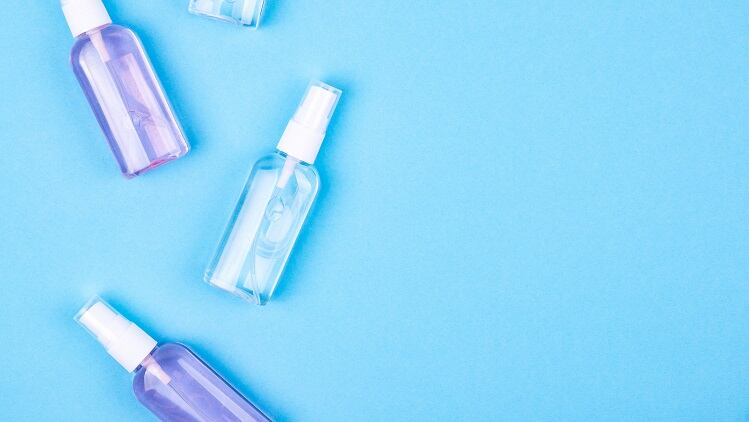Yesterday afternoon Health Canada announced a temporary update to hand sanitizer production regulations.
“Health Canada has assessed the risks and benefits of hand sanitizers containing technical-grade ethanol and has concluded that, when used as directed and for a short period, the public health benefit to limit the spread of COVID-19 outweighs the risks,” explains a media release circulated by the government agency. “Based on its risk assessment, Health Canada is taking action immediately to ensure the safety of these products.”
Canada sees a lift in personal care product sales and a shortage in raw materials
According to Statistics Canada (a government agency responsible for gathering economic, social, and census data), when compared with average sales from 2019, hand sanitizer sales were up 477% in the first week of January 2020 and by mid-March were up 639%.
The mid-March data also shows sales of hair care (shampoo and conditioner) up close 75% and soap sales over 150% higher.
The discrepancy between increases in sanitizer and soap sales is particularly notable since, as the government’s media release states, “The best way to limit the spread of COVID-19 is by washing your hands frequently with soap and water for at least 20 seconds” and that sanitizer should be used only when hand washing is not possible.
All the same, the sharp rise in demand for alcohol-based hand sanitizer “has led to shortages of raw materials, such as ethanol, which has led to searches for substitute ingredients,” explains the release.
Hand sanitizer regulatory changes are temporary and will be carefully monitored
Once USP- and food-grade ethanol production catches up with the demand for sanitizer, the temporary regulations will be lifted. In the meantime, authorization to use technical-grade ethanol will be granted on a case-by-case basis.
This is because there is an increased risk to consumers: “Technical-grade ethanol has more impurities than USP- and food-grade ethanol. One of these impurities is acetaldehyde, which is also found in alcohol and food we consume as well as products we use on our skin, such as cosmetics. Like most health products, hand sanitizers containing acetaldehyde can pose health risks if used more frequently and for a longer period than directed,” states the release.
New hand sanitizer labeling regulations for manufacturers in Canada
To help keep consumers safe, Health Canada has issued specific labeling guidelines for any hand sanitizer made with technical-grade ethanol. “Manufacturers that use technical-grade ethanol in their hand sanitizers must provide additional information on their product labels to support the safe use of these products.”
Those guidelines, take verbatim from the Health Canada media release follow:
- clearly indicating that technical-grade ethanol is included as an ingredient
- specific directions for use and warnings that these products are intended for adult use only, that they should not be used on broken or damaged skin, that they should not be used by women who are pregnant or breastfeeding, and that they should not be inhaled
- information on how to report any adverse reactions to Health Canada
Find the full interim guidelines for manufacturing hand sanitizer in Canada here.
---

Deanna Utroske is a life-long writer and advocate for the success of women in and beyond business. As Editor of CosmeticsDesign.com, she writes daily news about the business of beauty in the Americas region and regularly produces video interviews with cosmetics, fragrance, personal care, and packaging experts as well as with indie brand founders. Find out how else the Coronavirus crisis has changed the beauty industry in this recent #duviews video.




